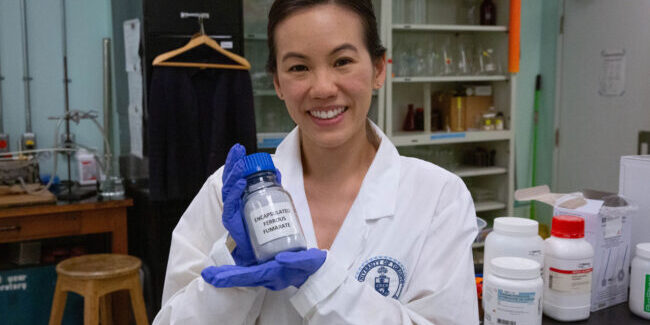The Connaught Committee met Dec. 16 to make its final decision on the winners of the Innovation Award and the Summer Institute. The committee also invited three researchers to move forward with applications to the Global Challenge Award.
Founded in 1972, the Connaught Fund was created from the sale of Connaught Laboratories, which first mass-produced insulin, the Nobel award-winning discovery of U of T Professors Frederick Banting and Charles Best. The university has stewarded the fund in the years since, awarding more than $100 million to U of T researchers. Today, the fund invests nearly $4 million annually in emerging and established scholars.
The latest round of awards is the first under a new program architecture. After spending a year in consultation, the Connaught Committee designed a new suite of programs that would promote excellence in research and innovation across the disciplines, raise the profile of the university and help it recruit and retain scholars.
“The goal,” said Professor Paul Young (CivE), U of T’s Vice-President (Research), “is for the Connaught Fund to have a transformative impact on our community, just as its namesake the Connaught Laboratories did. We want to make sure that the Connaught Fund, which has been so critical in supporting the research of our scholars for the past three-plus decades, is being put to best use in today’s context—hence, the new suite of programs.”
Engineering’s Vice-Dean, Research received one of two Summer Institute Awards: Professor Stewart Aitchison (ECE) received $50,000 for the “International Symposium on Nanofabrication.” The symposium will bring together international graduate students, post-doctoral fellows and other scholars to foster interdisciplinary collaboration and creative new methods for research and innovation.
Ten scholars received between $30,000 and $80,000 each from the Connaught Innovation Award, which helps accelerate the development of promising technology and promote commercialization and knowledge transfer. Engineering’s researchers are:
- Mansoor Barati (MSE) for “Development of a technology for production of solar grade silicon”;
- Tom Chau (IBBME) for “Development of a brain-computer interface based on near-infrared spectroscopy”;
- Amr Helmy (ECE) for “The next generation diode laser products benefiting environmental and biomedical instruments”;
- Peter Lehn (ECE) for “The next generation in commercial solar photovoltaic system configuration: high voltage bipolar DC collector networks with distributed DC/DC converters”;
- Joyce Poon (ECE) for “Fabrication of coupling-modulated lasers”;
- Milica Radisic (IBBME, ChemE) for “Application of QHREDGS peptide in survival and expansion of human stem cells and their cardiovascular progeny”;
- Yu Sun (MIE) for “Automated adherent cell micoinjection”;
- Aaron Wheeler (Chemistry, IBBME) for “Detection of steroid hormones using digital microfluidics”; and
- Ning Yan (Forestry, ChemE) for “Developing NCC based antistatic coatings and conductive packaging materials as ESD protection products.”
Finally, the committee invited three applicants to move to the next stage of the Connaught Global Challenge Fund application process. The award of up to $1 million annually brings together some of the university’s top researchers with leaders from other sectors. Through its three program elements — the Connaught Distinguished Visiting Scholar, the Connaught International Symposium and the Connaught Research Cluster — the Global Challenge Fund will enhance the university’s contribution to important issues facing society.
“The Global Challenge Fund allows us to focus intently on a leading global challenge of the 21st century,” said Young, “and to support research that is truly transformative in scope.”
Based on letters of intent, teams led by three U of T researchers have been invited to make full applications to the committee, including Dimitrios Hatzinakos (ECE) for “SmartData: How to get smart about evolving intelligence and protecting data.”
“Our intent,” said Young of the redesign of the Connaught Fund programs, “is for the new program architecture to promote research excellence within the institution and to target funding to areas where traditional sources are currently limited.”
He went on to say that further announcements from the Connaught Committee are forthcoming. “We will soon be announcing the winners of the New Researcher Award, which helps new tenure-stream faculty members establish competitive research programs, and the McLean Award, which supports an emerging leader conducting basic research.”



